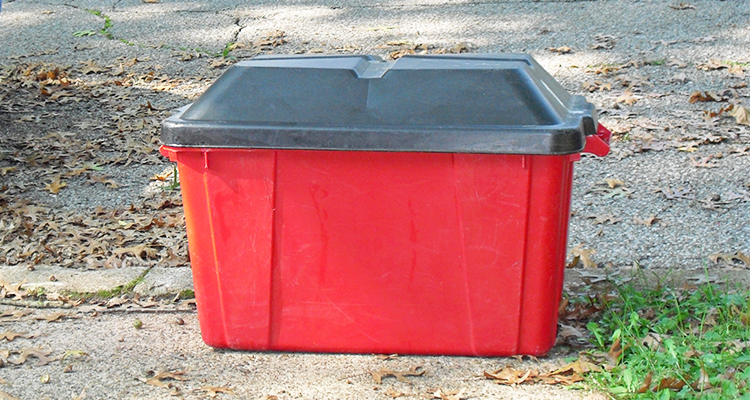Editor’s Note: In this piece in our series on the greening up of Wheeling, Weelunk sat down with city officials to talk about recycling, walkability and their vision for a greener future.
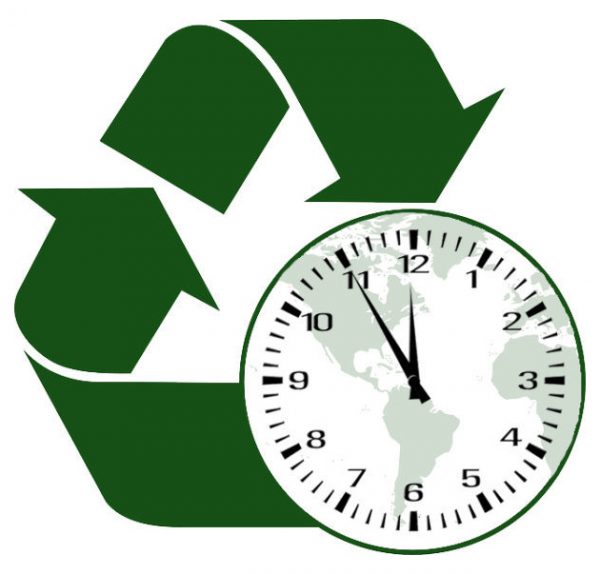 Will it be cardboard at the curb or couches on the alley? Stomping plastic water bottles flat for easier storage or paying per bag for garbage collection?
Will it be cardboard at the curb or couches on the alley? Stomping plastic water bottles flat for easier storage or paying per bag for garbage collection?
A whole lot of decisions about what and how Wheeling residents will be able to recycle and dispose of trash in the short- and long-term are working their way up the city’s agenda. The issue is spurred on by a breakdown in the global recycling system that ultimately shuttered a counterpart drop-off program offered through the county Solid Waste Authority earlier this month.
“We all agree we have to do more than we’re doing,” said Mayor Glenn Elliott Jr. in a recent Weelunk interview that also included Rusty Jebbia, director of public works, and Jesse Mestrovic, director of parks and strategic planning. “It’s worth having that conversation.”
The conversation has already started, in fact. A recycling committee appointed nearly a year ago has been meeting and asking Jebbia a series of questions about numbers. Taking a break during the interview to fire off an email to members of that very committee, Elliott said it’s time to make a move — perhaps a committee-generated proposal to the city council or even the consideration of a wholesale reinvention of the city’s waste management program.
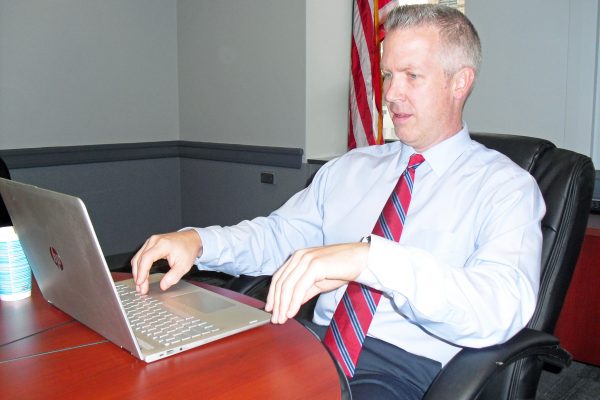
New Models
Right now, city trucks continue to pick up magazines, newspapers, office paper and cans made of aluminum, bi-metal, steel and tin inside the city limits.
Tightening standards in China, which is retreating from a role as commodity buyer of much of the world’s recyclables, fully filtered down to Ohio County this month. With the removal of authority drop-off bins at Oglebay and Clearview in early September, there is no outlet of any kind for such recyclables as plastic and glass inside the county and no Wheeling- or county-sponsored site that accepts cardboard.
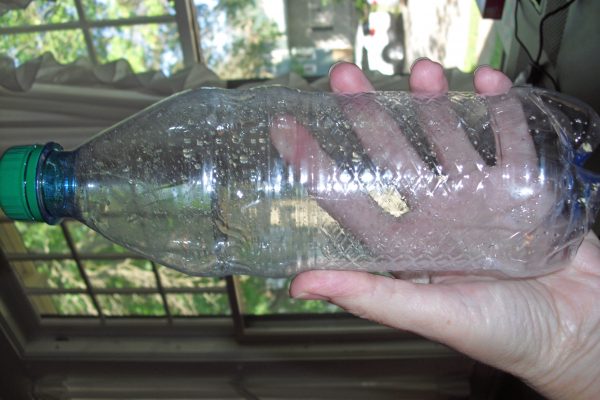
Elliott and Jebbia said there are basically two paths the city can take in terms of recycling: building a more comprehensive program with tweaks made over time or starting over. Both have their pros and cons, they agreed. But what those pros and cons are was less of a consensus. Elliott is concerned about both money and citizen buy-in. Jebbia is ready to tweak now, but worries too big of a change could leave the city without options in the future.
“We have the ability to put another divider in our trucks and pick up another product,” Jebbia said of one tweak that could start almost immediately. But, the question is what item.
Plastic would seem like the go-to because there is now no other local outlet, but Jebbia said it has become, globally, the most problematic recyclable of all. For one, it is lightweight, which affects commodity value. “It would take thousands of water bottles to make a ton,” he said.
There is also a multiplicity of plastic types, he noted. When it comes time to bale and sell on the for-profit market — currently an economic driver that is required to avoid landfilling — type 1 plastic (such as water bottles) cannot be combined with other types (such as milk jugs or detergent bottles) and so on.
Cardboard is another possibility for that third truck section. Residents are ideally already separating metals from paper in their blue or red bins, and handlers reinforce this by throwing recyclables into separate sections of city trucks to maintain the purity needed in the commodities market. Will residents be willing to separate a third product and be able to keep it out of the rain? He’s not so sure.
Drastically dropping participation numbers over the last 26 years make him skeptical. Pulling out a list of stats collected for the recycling committee, Jebbia explained that when Wheeling began offering recycling in 1992, as part of a state mandate geared at reducing landfill waste, the city participation rate was 85 percent, with nearly 1,000 tons of recyclables collected each year. In 2017, only 176 tons of recyclables were collected.
“It was a great idea, but it never made it to fruition,” said Jebbia, who was already on board when recycling of newspaper, metal and clear glass began. (Always focused on getting the heaviest materials out of the landfill stream, he said the city has never collected plastic.)
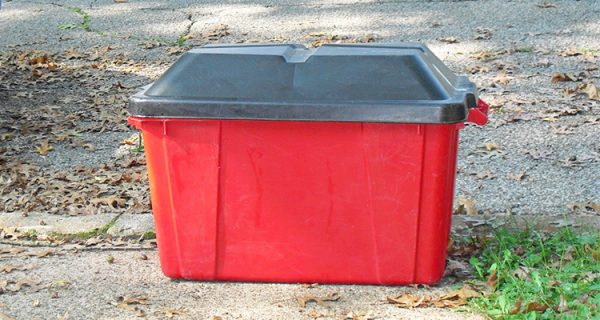
He remembers the shiny new trucks and plenty of photo ops with workers in pinstriped uniforms to differentiate them from garbage collectors. But he knows that ever-changing costs, lack of outlets and a persistent rumor that city recyclables are landfilled, have long since removed the sheen.
Tonnage issues aside, Elliott said there are short-term tweaks that could at least keep pop cans off city streets. He pointed to streetscape plans already in the works with the state Division of Highways that include installing both trash and recycling receptacles throughout the downtown.
He’s also looking beyond those quick fixes, even into an area that sobers both men —some sort of privatization or a cooperative agreement with another county or other government entity such as the Solid Waste Authority. Both men agreed privatization would require contracting for both garbage (whose fee collections bring in enough revenue to more than cover landfill tipping fees, trucks and worker wages/benefits) and recycling (which is entirely subsidized to the tune of $167,000 a year by that same revenue source).
“It’s a risk,” Elliott said of bringing in an outside party. “There are a lot of citizens who would not (appreciate) having to have very strict rules. People take their trash pickup pretty seriously around here.”
He said, for example, city crews will currently pick up a dilapidated couch from an alley. Private haulers generally won’t. A for-profit hauler might also charge by volume, selling bags to residents. In such a scenario, enhanced recycling may make one constituency happy, but another set of residents may be equally angered.
That said, Elliott acknowledged that dollars and common sense also come into play. There would have to be real incentive to get the kind of buy-in needed to dramatically increase recycling tonnage. He compared it to hotel policies of not laundering towels each day that have become almost universal. It’s good for the environment, but, “they’re doing it because it saves them money.”
“It (any revamped sanitation/recycling plan) doesn’t have to generate money, but it has to make economic sense,” he said.
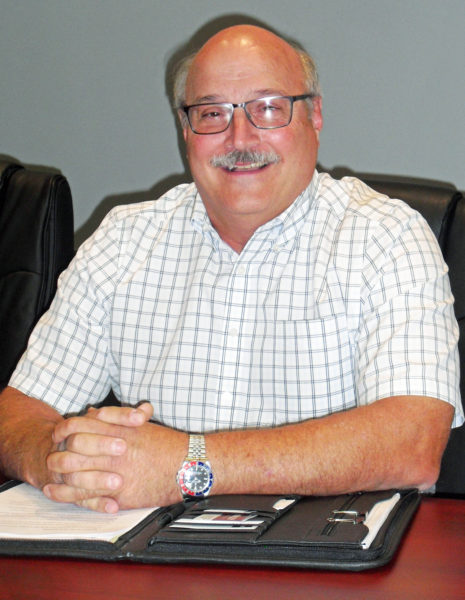
Jebbia is most concerned about the long-haul economic sense.
In his 40 years of public-works service, recycling has proven to be an ever-changing game. In the early 1990s, for example, he said the city actually made some money on newspapers and aluminum. Over the years, that income not only disappeared but the city had to switch outlets and begin hauling truckloads to an Ohio processor a decade ago in order to avoid paying to get rid of its cans and paper. That no-cost arrangement dried up in July. Since then, Wheeling has been cooperating with Brooke County Solid Waste Authority, which is baling and selling specific recyclables directly onto the commodities market from its Beech Bottom operation.
“We told them what was happening here, that we had no place to take our materials,” he said of one government program helping another. He’d like to see more such cooperation rather than risk privatization, which would face the same challenges, without any municipal backup.
That, in Jebbia’s long-term experience, foretells money problems.
“We lose control of the cost,” Jebbia said. “You may have a contract (for two or three years), but after that, I guarantee our garbage rates would go through the roof.”
He’s also concerned about selling off city sanitation and recycling trucks, a new one of which can cost upward of $200,000. There are some state grants out there, and the city has gotten them. But, if the trucks are gone, if privatization occurs and then fails, would enough funding ever be available to re-start a municipal program from scratch?
Green All Over
The recycling issue goes far beyond what happens at the curb or at the landfill, Elliott said. Managing waste and recyclables is also about the city’s economic vitality.
“It’s important to meet the expectations of young people,” Elliott said of new residents that hail from places like California or New York, where there is a more ingrained recycling culture. “It’s (lack of recycling) almost offensive to them,” he said. “That’s a negative perception that we have to fight. We want to keep these people here. We have to meet their expectations and also do what is right.”
Elliott, a city native who followed career opportunity to Washington, D.C., before returning in mid-life, feels their pain on more than one level. He’d like a good outlet for his own recyclables, but he is also concerned that only about five of his fellow Linsly grads from 1990 remain in the city. Quality of life — including greenness, as well as opportunity — go hand-in-hand in luring people in or back, he said.
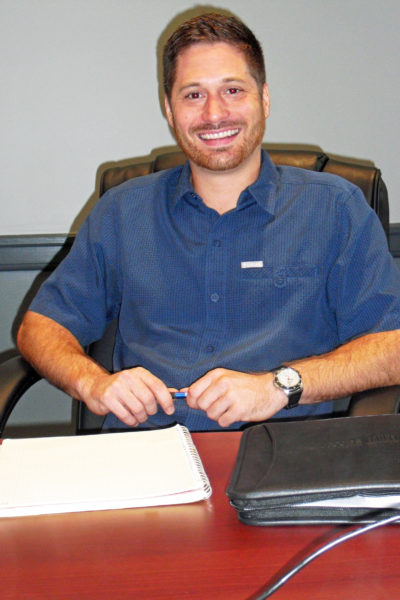
Mestrovic, so full of outdoorsy vim he blogs about bicycling in his off hours, agreed. He, too, left Wheeling, working for the state park system before returning home in 2017.
Interviewing alongside Mestrovic, Elliott nods. “Young workers pick their cities before they pick their jobs.”
Elliott and Mestrovic went on to tick off green things that are already happening: Bike racks are going in around the city and at schools; two miles of rail-trail improvements are being made at a cost of $95,000; a pedestrian/bike bridge connecting Wheeling Jesuit University to the Woodsdale/Edgewood neighborhood is due to be replaced by the end of the year.
Then, there are things they would like to see happen: Restaurants alongside Wheeling Creek could offer outdoor dining; a connector along Wheeling Creek could turn rail-trails into an “H” shape; the soon-to-be-demolished Aetnaville bridge that connects Wheeling Island to Ohio could be replaced with a pedestrian/bike one; the downtown could be further beautified and its traffic slowed to make parking in garages and walking to destinations more appealing; the city could troubleshoot problem intersections like the crossing of National Road and Bethany Pike from a pedestrian’s point of view; a downtown bike-share program could be implemented; and the city could install bike-friendly signage to acknowledge National Road’s identity as a national bikeway.
Mestrovic, smiling broadly with enthusiasm for his re-found home, returned the conversation to the “trash” at this point.
“Composting,” he said, still smiling. “That’s something that we haven’t really discussed.”
Elliott and Jebbia were listening — and clearly musing. Leaves raked and sucked from city streets each fall already go to a flat field at an old landfill site in the North Park neighborhood, Jebbia said. They are periodically turned with a backhoe to create mulch the city uses on playgrounds and occasionally shares with the non-profit Grow Ohio Valley.
Could the trucks and worker time/money somehow be found to expand that? Will the city someday be selling mulch back to its citizens? Will derelict couches and empty milk jugs and stacks of old cereal boxes be assured of a proper burial — or second life?
Time will tell.
• Nora Edinger writes from Wheeling, W.Va., where she is part of a three-generation, two-species household. A long-time journalist, she now writes in a variety of print and e-venues, including her JOY Journal blog at noraedinger.com. Her first work of fiction, a Christian beach read called “Dune Girl,” is available on Amazon Kindle.


